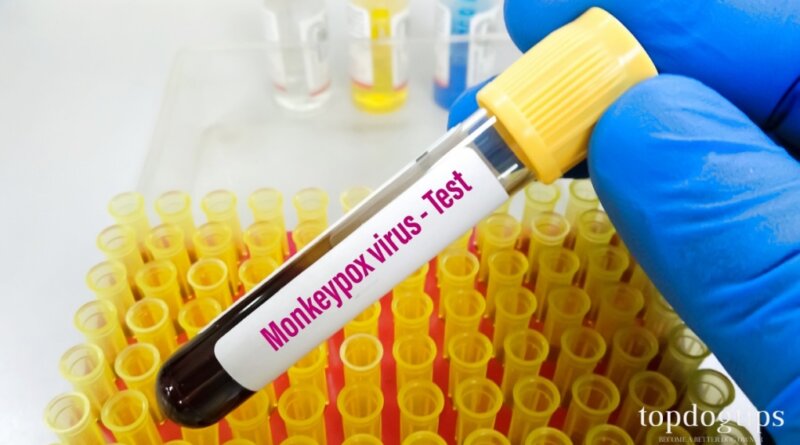Can Dogs Get Monkeypox? – Top Dog Tips
Even if you don’t pay attention to current events, you’ve surely heard of the Monkeypox outbreak around the world. This is a viral disease that can be transmitted from animals to people, but can it be transmitted the other way around? Many pet parents are wondering can dogs get monkeypox?
As the panic around this virus grows, many pet owners are worried about the health of their companion animals. Is this something that pet parents even need to be concerned with? What precautions should we take, if any?
Can dogs get Monkeypox? The short answer is, yes. But, there’s a lot more to it than that. In order to answer this question, I had to do a lot of research. There is a lot of false information being passed around, and I wanted to be sure that I had the correct information backed by research. Keep reading to see what I found out about the Monkeypox virus and the threat to our pets.
Can Dogs Get Monkeypox?

Even more attention is being drawn to this topic after an article was published last month in the French medical journal The Lancet. The article claimed that an Italian Greyhound contracted Monkeypox from his owner.
The owners let their pooch sleep in bed with them. The owners had been diagnosed with the virus days earlier. The Greyhound began to develop lesions, a common symptom of the virus, and was later diagnosed with Monkeypox.
While the report states that this is the first case reported in a canine, Monkeypox has also been found in rodents and other wild animals. According to the American Veterinary Medical Association (AVMA):
“…Most recently, in May 2022, multiple cases of human monkeypox began to surface, fueling outbreaks in several non-African regions, including the United States. Case counts escalated in just a few weeks to involve at least 75 countries, prompting the World Health Organization to declare monkeypox a global emergency on July 23, 2022. The White House followed suit on August 4, 2022, declaring a national public health emergency. So far, disease transmission has mostly involved close, intimate contact with an infected person.”
At this time, there really isn’t much guidance on this topic. However, the CDC does recommend keeping any exposed animals in quarantine for 21 days after the initial exposure. They also recommend that any human diagnosed with the disease should stay away from their pets for at least 21 days.
Personally, I would also recommend calling your veterinarian immediately. Even if your dog isn’t showing symptoms, it’s best to inform your vet’s office so that they can be prepared for what may be coming.
Signs of Monkeypox in humans include:
- fever
- rash (pustules/papules)
- headache
- muscle aches
- backache
- swollen lymph nodes
- chills
- exhaustion
Signs of Monkeypox in dogs/cats include:
- lesions/rash
- cough or other respiratory issues
- fever
- conjunctivitis
- decreased appetite
If you notice any of these signs in yourself or your pet after being exposed to the Monkeypox virus, seek medical care immediately. Monkeypox is rarely fatal, but it’s important to get the supportive treatment needed (such as fluids and treatment of related bacterial infections) in order to prevent serious complications from arising.
READ NEXT: Canine Coronavirus (CCoV and CRCoV) – What It Is and What It Isn’t
Related




